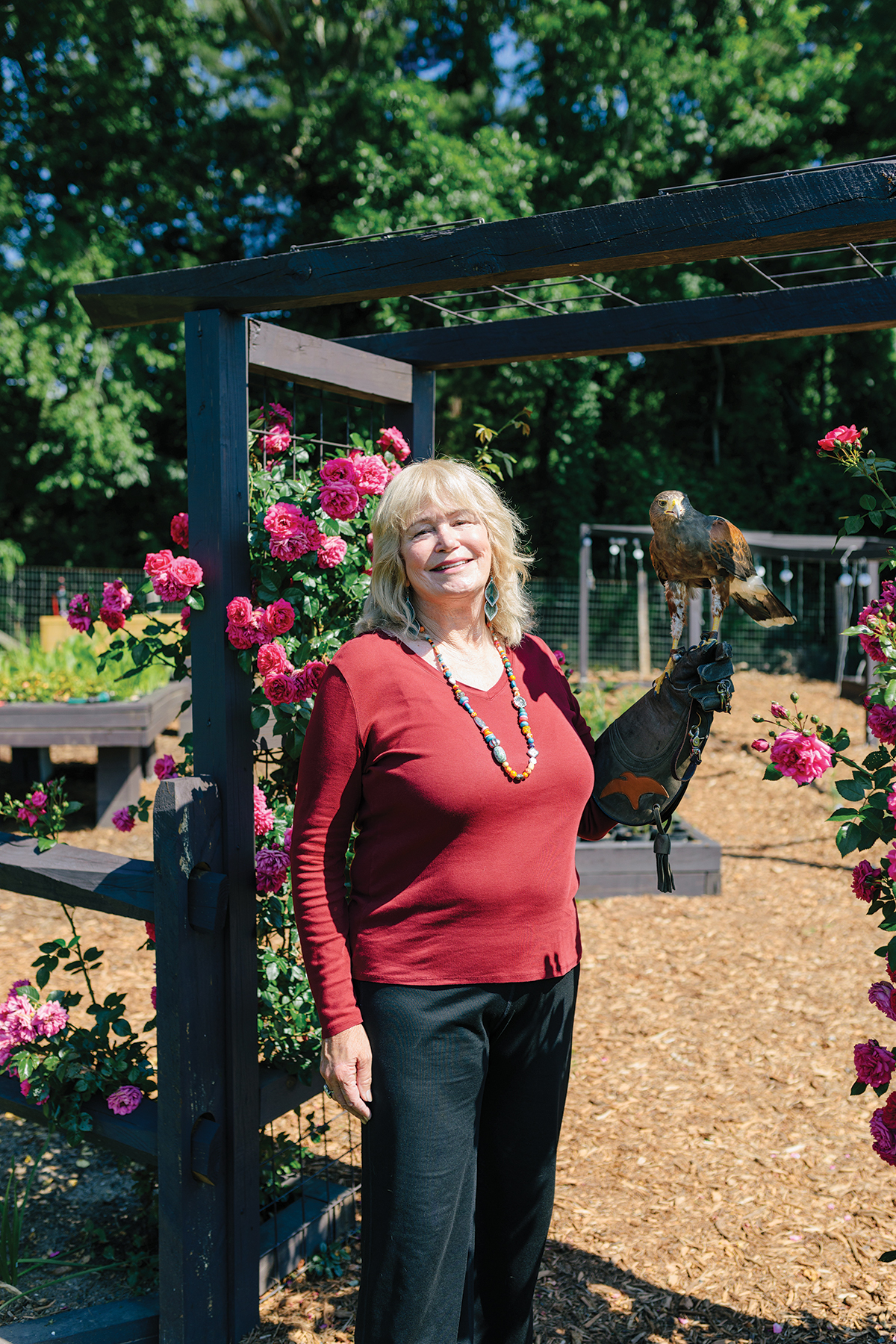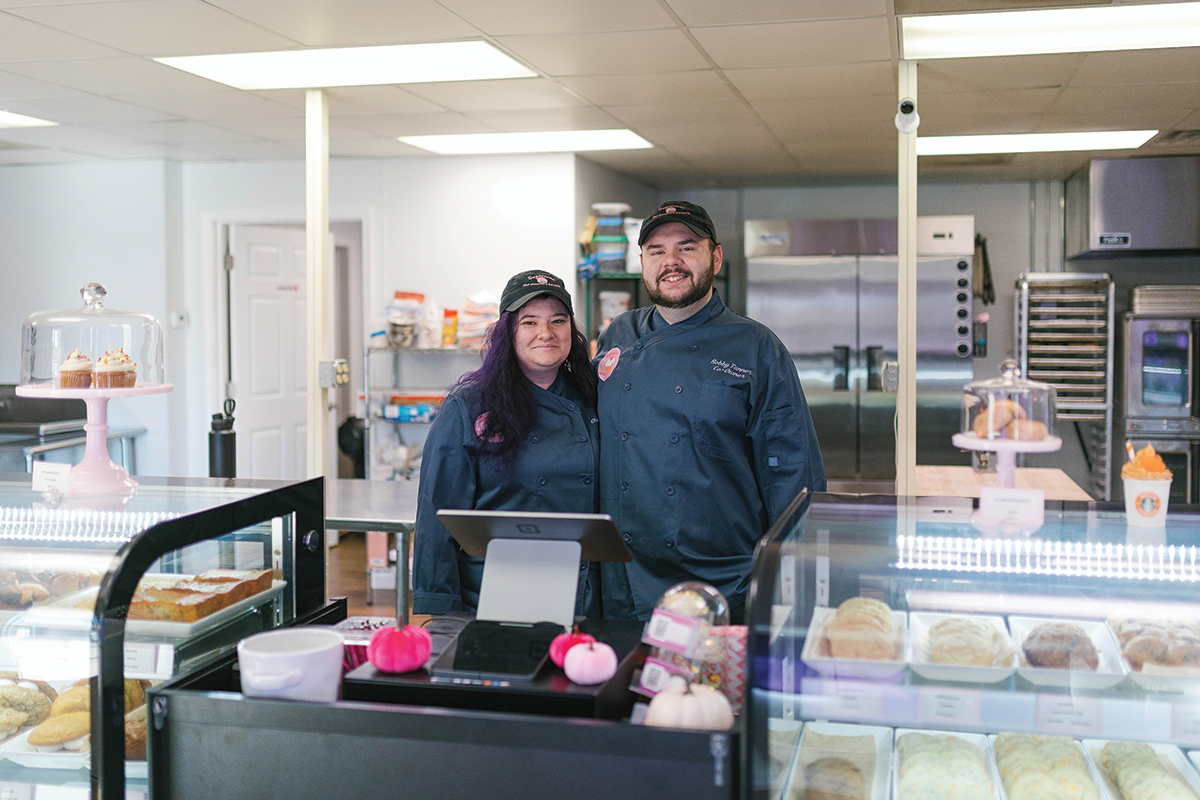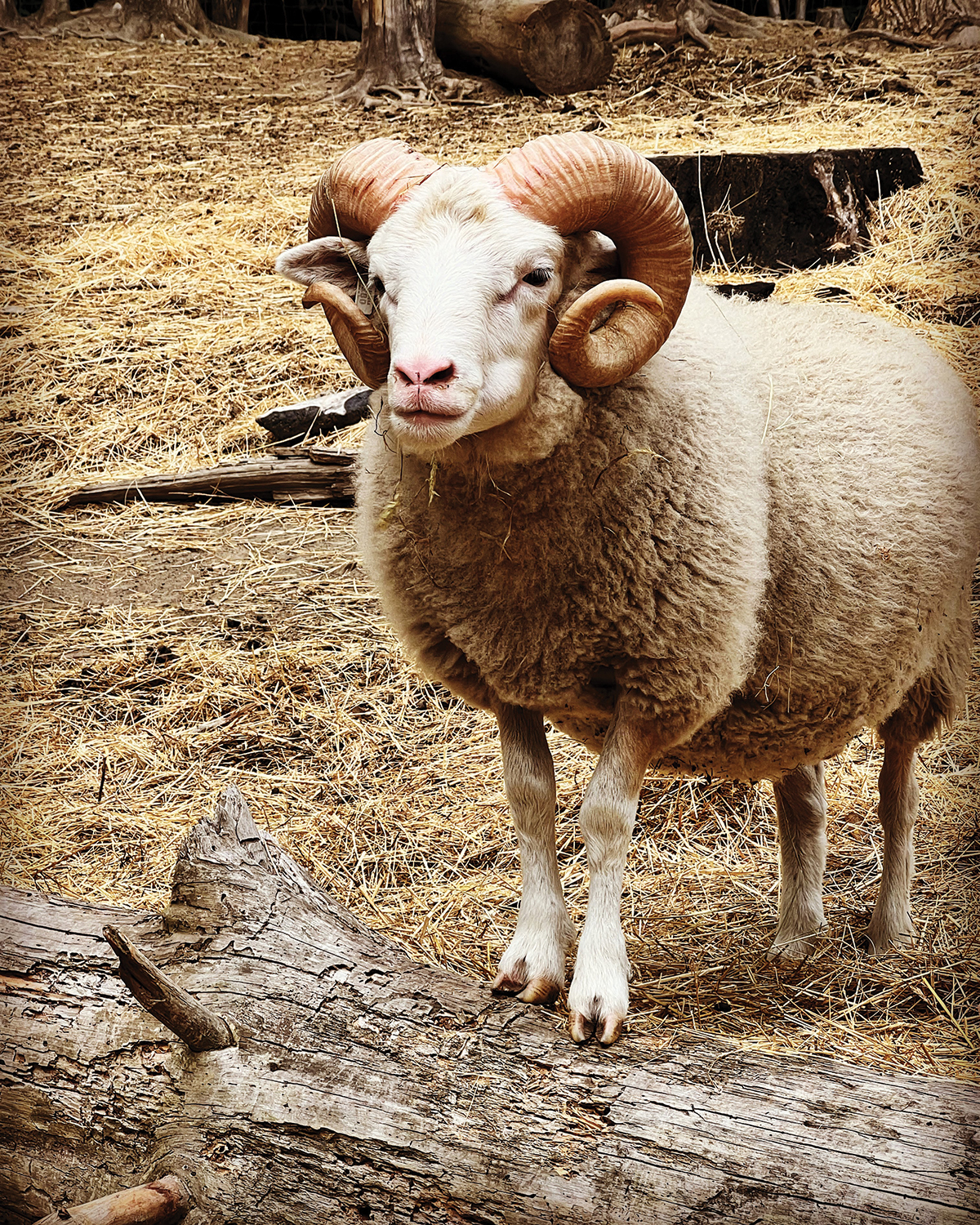Fletcher woman cares for endangered tropical birds and honors fallen first responders

PEACE, LOVE, AND UNDERSTANDING
Leeann Shearouse shares a message by caring for injured birds.
Photo by Rachel Pressley
The first impression of C.A.R.E. is of well-manicured gardens and pretty colors — pretty colors everywhere. But the Carolina Avian Research & Education center, located in rural Cane Creek Valley, is a serious endeavor: a round-the-clock, highly protected labor of love. Founder Leeann Shearouse only opens the center’s high-security gate by appointment.
She is well known for her professional cultivation of lilies, tulip, and iris, including a memorial series of hybrid iris named for fallen firefighters and police officers (one of them is the “Iris Jeff Bowen” honoring the Asheville Fire Department captain who died in the line of duty in 2011).
Rare birds like flying jewels make an even more vivid statement. Around 65 of them can be seen flying and perching in their aviaries — room-size outdoor enclosures with vegetation and watering holes. Behind the gate, this is a peaceful place for injured birds and fragile flowers, and Shearouse tends to them all, in between teaching gardening and falconry classes.
She is an advocate on many fronts who says, “There is nothing more important than helping people.” Last year, Shearouse helped implement the Compassionate Care Unit at Mission Hospital for survivors of sexual assault.

Lady Gouldian Finches from Australia show off their rainbow colors.
Photo by Rachel Pressley
A woman who speaks with intention, she is often seen bearing Jack, her one-eyed falcon, on her arm. Shearouse leads official visitors step by step through the two-acre property, at times calling her birds by name, and always reminding newcomers where to stand or not stand so as not to over-excite them.
The aviculturist’s rare birds, many of them endangered, include the Red Rumped Parrot of Australia, the Golden Pheasant of China, the Spot Breasted Oriole of South America, and the Red Crested Turaco of Africa. They are sent here to be nurtured, studied, and bred (Shearouse is connected to other avian centers that are familiar with her methods). Many have been injured, though she is quick to say they don’t have “flaws,” they only have “boo-boos.” She’s also quick to point out that C.A.R.E. is not the same as a rescue site — in other words, she cannot accept surrendered birds or other wildlife.

The Harris’s Hawk (from the American Southwestern desert)
Photo by Rachel Pressley
Here, the carefully selected feathered residents enjoy enriched lives — living as naturally as possible outside their native tropical habitats. It’s worth noting that Shearouse moved to the area not for the mountains or arts scene, but because Western North Carolina is the southernmost point where one can cultivate outdoor tulips.
In another life, in West Palm Beach, she was a florist. Internationally recognized as a plant hybridizer, Shearouse was awarded the Banksian Medal by London’s Royal Horticultural Society in 1998 for her work in ornamental horticulture. Today, the sale of her water lilies, daylilies, and canna lilies, plus tours, classes, and speaking engagements, support C.A.R.E., which needs between $7,000 and $8,000 each month to operate.

The Blue Crowned Pigeon (Indonesia)
Photo by Rachel Pressley
Except for Friday nights out with girlfriends, Shearouse is always on duty. A survivor who suffers from Post Traumatic Stress Disorder, she says she is “looking for peace” through her work with flowers and birds, which, she adds, have brought her “closer to God than ever before.”
Four years ago, the plot of land that became C.A.R.E. was just red dirt and weeds. Considering all she has built since then, Shearouse says her goal now is sharing the property’s serenity. But she maintains an activist’s eye.

Beautifully manicured gardens support Shearouse’s professional flower cultivation.
Photo by Rachel Pressley
“The takeaway from the classes is seeing birds from so many different places — from continents around the world — living together, not judging or fighting, finding ways to live in harmony. I want people to do that, too. When people leave these classes, they are smiling and grateful for these life lessons.

Familiar farm fowl roam the grounds.
Photo by Rachel Pressley
“I want people to stop and think, ‘What can I do for nature and mankind?’”
— additional reporting by Melanie McGee Bianchi
C.A.R.E. (Carolina Avian Research and Education), Fletcher. For information about tours and classes, e-mail lilygirl95@me.com, call 561-281-4483, or see carebird.org.




What a very beautiful place! Thank you for the work that you do. 🙏❤️